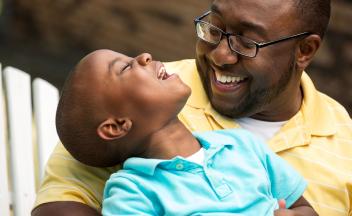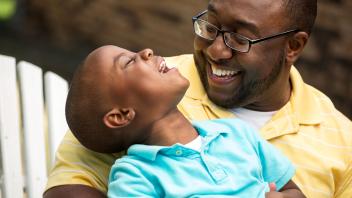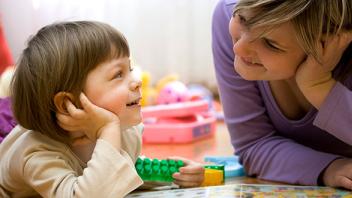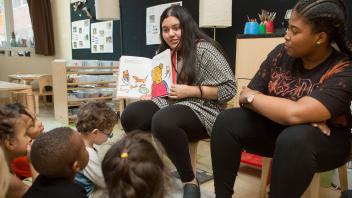Unlike reading, babies and young children are wired to learn how to speak. From birth to 5 years old, children learn to communicate and acquire a sophisticated vocabulary. This foundation of spoken language forms the bedrock that supports their future reading and writing skills.
Pre-K children are actively absorbing spoken language and experiences to make sense of the world around them. Engaging in rich conversations about everyday things and reading lots of stories are two terrific ways to help young children strengthen oral language skills and comprehension.
Having fun with words
This brief Parenting Minute video from WNET talks about how parents and caregivers can help build their children’s language skills through storytelling, talking, singing, playing rhyming games, as well as by pointing out and discussing things throughout the day. (Video also available in Spanish, Bengali, and Chinese )
Building a child’s oral language skills
This video is from Home Reading Helper, a resource for parents to elevate children’s reading at home provided by Read Charlotte .
How can I help my four year old learn more words?
Literacy expert Sandra Wilborn shares three key ways to build your young child’s vocabulary: lots of family talk, narrating your every day activities such as cooking or shopping, and reading to your child — while pointing out new words and then using them in your conversations. (From our video series Reading SOS: Expert Answers to Family Questions About Reading.)
Exposing pre-K children to big words
In this clip from our webinar, Babbling to Books, early literacy expert Dr. Sharon Ramey talks about the importance of exposing very young children to rich language and big words.
More on oral language and vocabulary
Oral Language
Nurturing Oral Language Skills
Reading 101: A Guide for Parents
Oral Language Comprehension: Activities for Your Pre-K Child
Reading 101: A Guide for Parents
Vocabulary: Activities for Your Pre-K Child
Vocabulary
Talking Counts!
Themed Booklist







